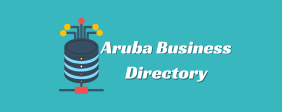If you! receive an SMS from a bank or credit union where you have an account, you will likely trust it. A typical example is when they! urge you to update your PIN by saying! “Your PIN will expire! so if you do not update it, you will not be able to use it from this date,” and then they link to a fake URL to steal your PIN.
There is also an SMS phishing scam that says, “You haven’t logged in for xx days. If you don’t log in by xx/xx, your account will be temporarily suspended.” If you enter your login information at the URL link, your ID and password will be stolen.
Requests for payment of credit card or communication charges
There are also phishing scams that pose as credit card companies or telecommunications companies to urge payment of bills. A typical scam starts with a message like “This month’s payment has not been confirmed,” and then says that if you do not pay online immediately, your credit card or telecommunications service will be suspended. A fake URL link is included in the SMS, and if you tap it, ransomware will be installed or you will be asked to enter your credit card information.
You will be more telegram data likely to trust an SMS sent from a carrier. There have been cases of d-account login information and d-card information being fraudulently used by docomo users due to SMS spoofing. Carriers are warning users to be careful, but the reality is that the number of cases continues to grow.
It poses as an online shopping site and leads users to a fake site
There has been a lot of phishing via SMS and emails pretending to be from well-known online shopping sites. A why you should promote kayak common pattern is to receive a message from an e-commerce mall such as Rakuten Ichiba or Amazon, urging you to update your credit card information or personal information. You may also receive a notification that there is a problem with your payment method or that your membership’s automatic renewal setting has been canceled. You may also receive a message that your payment method was not authenticated and that you have an outstanding balance.
There are also clean email phishing scams that encourage you to register for campaigns or services. They say that if you log in using this URL, you will receive special benefits. The subject line may be “exclusive to those who received this email,” so you are likely to click on it.
